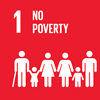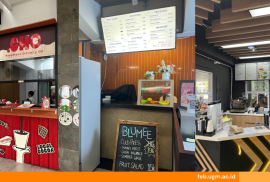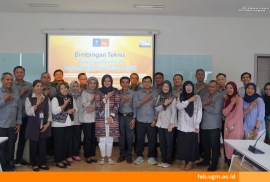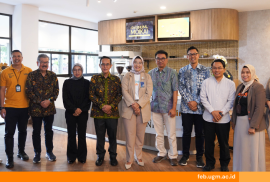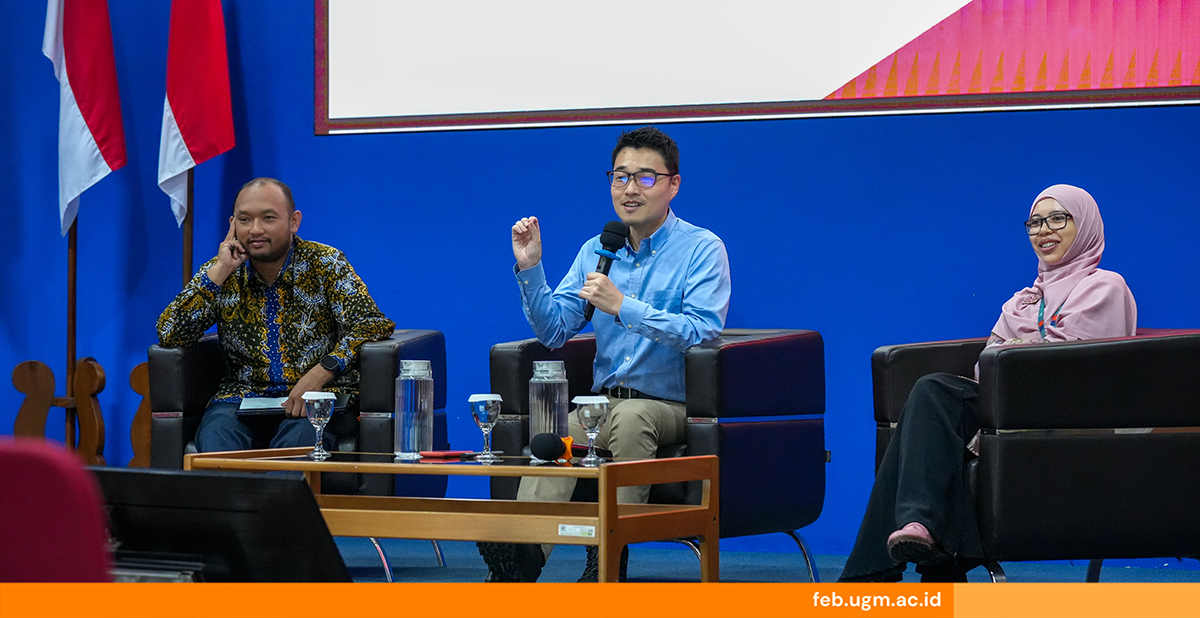
The Faculty of Economics and Business, Universitas Gadjah Mada (FEB UGM) held a discussion titled Micro-Economic Talks (MET) Seminar: “Just Energy Transition and Social Protection in Indonesia” on March 19-20, 2025. The seminar focused on social protection as a means to support a just transition amid climate change.
During the event, Ippei Tsuruga, Social Protection Programme Manager at the International Labour Organization (ILO) for Indonesia and Timor-Leste, highlighted the critical role of social protection in facilitating the transition to a green economy.
Ippei noted that since introducing the National Social Security System (SJSN) in 2004, Indonesia has implemented various social protection schemes for both wage earner and non-wage earner workers. However, Indonesia’s social protection coverage remains relatively low compared to other Southeast Asian countries.
According to Ippei, social protection benefits cover only 25.4% of children and workers, 22.8% of victims of work accidents, and only 2.5% of people with disabilities. Meanwhile, only 14.8% of older people receive benefits. These figures place Indonesia in Southeast Asia’s bottom three countries in terms of social protection coverage for these groups.
On that occasion, Ippei also stated that Indonesia could learn from countries that successfully implemented social protection during the energy transition. For example, Japan provides unemployment benefits of up to 80 percent for three years, free vocational training, and relocation assistance to workers displaced by the energy transition. Similarly, Argentina, Fiji, and the Philippines have expanded social protection systems to address the impacts of climate change, including relaxing unemployment benefit requirements and increasing financial support for workers who lose income due to natural disasters.
Meanwhile, Qisha Quarina, S.E., M.Sc., Ph.D., a lecturer in the Department of Economics at FEB UGM, presented her research on social security for coal miners. Her study found that there are approximately 336,000 workers employed in the coal mining sector, most of whom are formal workers eligible for workers’ social insurance schemes.
However, Qisha pointed out that the Fixed-Term Employment Agreement (PKWT) scheme makes workers more vulnerable because their social security coverage is not as comprehensive as that of workers under the Permanent Employment Agreement (PKWTT) scheme. The social security does not provide Pension Insurance (JP) and Job Loss Insurance (JKP) for PKWT workers.
“PKWT workers cannot receive Job Loss Insurance (JKP) benefits if their contract expires and their employer does not renew it,” she explained.
Report by: Orie Priscylla Mapeda Lumalan
Editor: Kurnia Ekaptiningrum
Sustainable Development Goals

